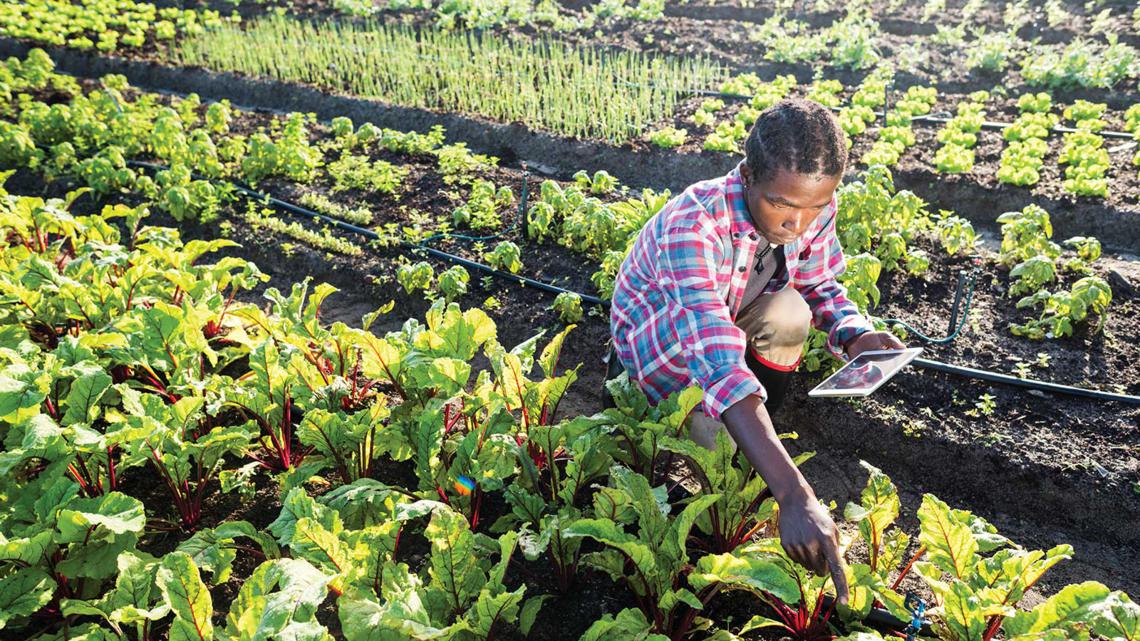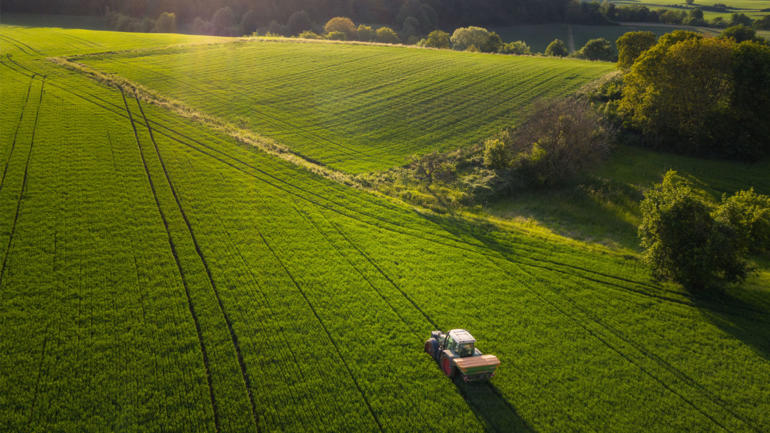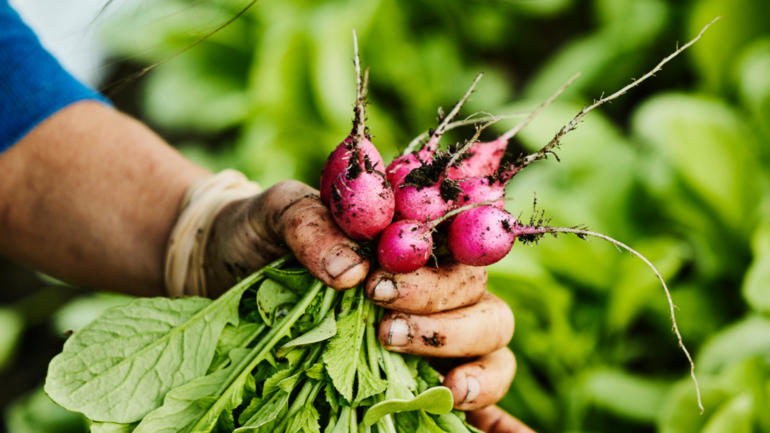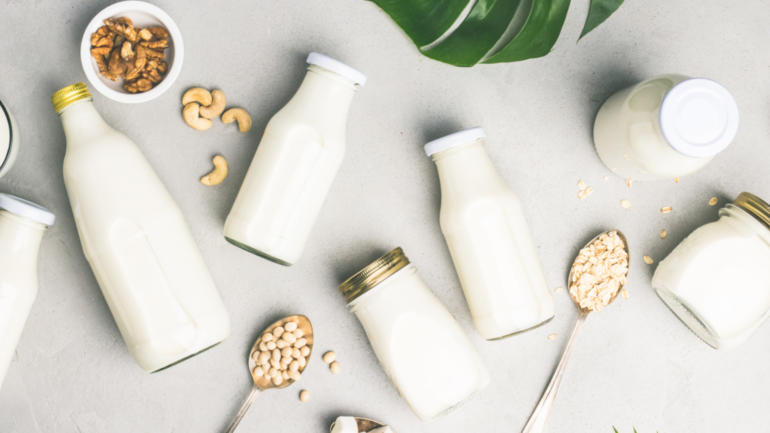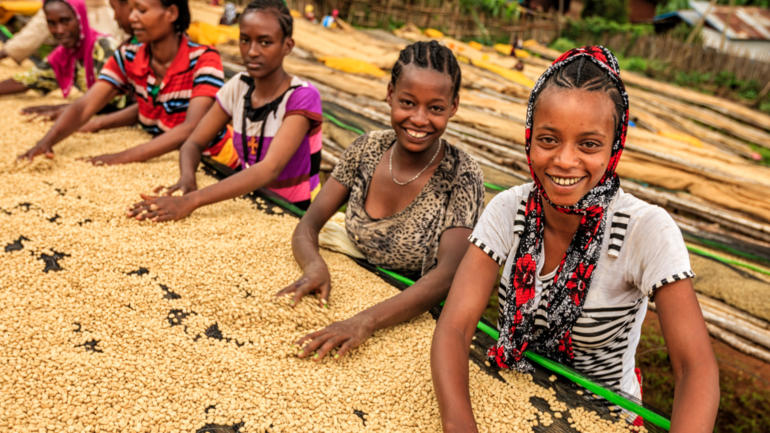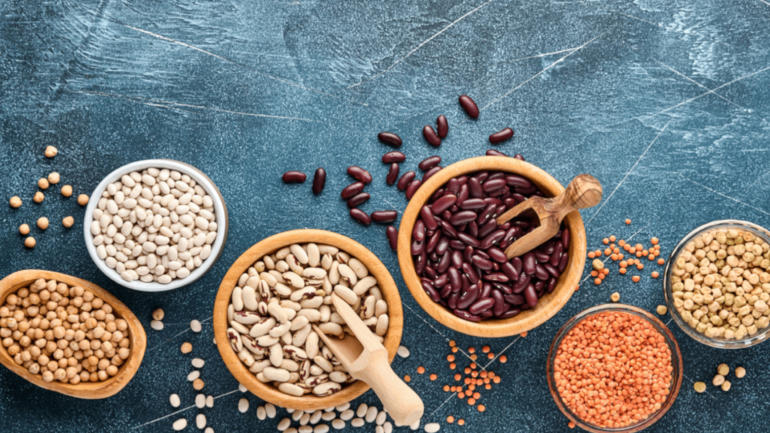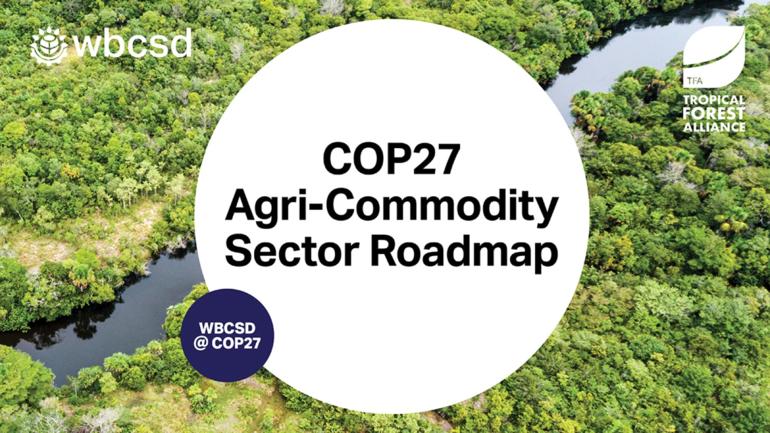Our food systems are broken. Global food systems face mounting challenges that are testing our ability to feed the world sustainably and adequately support economic and social development within planetary boundaries.
Increasing demand, climate change, water stress, soil degradation and shifting diets are just some of the threats facing global food security. Our current way of feeding the world is a leading cause of environmental and health crises, and it bears risks for national security, health systems, government budgets and economic growth.
Yet, even if we could grow all our food sustainably, we would still be faced with the fact that one third of the food produced globally never reaches the consumer. Food waste generates almost as many global CO2 emissions as the biggest countries such as the US and China.
Because almost all the world's food is privately produced, it is essential to fully engage the private sector in any move towards reforming our food systems. Business is part of the solution. We must be able to feed the world's population of 9.5 billion by 2050, within planetary boundaries, while being more resilient to the growing effects of climate change.
We still have a long way to go. The World Business Council for Sustainable Development (WBCSD) is working with over 200 leading global companies to deliver sustainable business solutions to a range of the challenges we all face. Food and land use in particular are really major issues.
The sector is complex. There is not one global food system, but rather food systems that vary across the planet - linked to nutrition, health, traditions, socio-economic conditions and lifestyle. I have a role as head of a joint initiative with the EAT Foundation (EAT) to focus on Food Reform for Sustainability and Health, which we call FReSH, to work with companies across the private sector to find solutions and reach healthy, enjoyable diets for all, that are produced responsibly within planetary boundaries. To achieve this ambitious goal, FReSH has brought business and science together to develop high-impact solutions.
Let me give an example. To make chutney, Hellman's has traditionally only been buying and using red tomatoes, which means that the tomato producers in Spain had to discard the tomatoes that weren't fitting the bill - the green ones. Wanting to address this issue, Hellman's created a new and slightly tangier chutney also popular with consumers that uses red and green tomatoes and adjusted seasoning. Red & Green was born and has recently launched in the UK.
This in turn helped the Spanish tomato producers behind the product, who now sell all their tomatoes to Unilever, thus reducing waste while contributing to the production of a popular and sustainable new global product. It's just one of many similar product stories at Unilever and elsewhere - and a great example of the kind of things happening across the private sector to deliver on the triple bottom line - producing nutritious food sustainably while making good business sense.
Past focus on food productivity alone is giving way to concerns over better nutrition, diet and health for people around the world, and to more sustainable ways of producing food which truly values our natural resources in the face of a changing climate.
Another example of great work being done is innovation in producing alternative animal proteins - for example Protix, a Dutch start-up that produces quality insect-based ingredients for the animal feed and pet food industries. Other global companies are also working on offering alternatives to meat use, such as Kellogg's, who make veggie foods with plant-based proteins in their MorningStar Farms products.
All this can seem daunting, particularly for smallholder farmers and companies, so we're working on that too. For example, the M-Farmer app is being developed by the World Economic Forum, Olam and Unilever amongst others, to reach out to smallholder farmers and provide them with precise and tailored weather information that tells them when to plant, fertilize or harvest to get optimum harvests while reducing waste and increasing resilience. The aim is to have 10 million users by 2030.
Meantime EAT and WBCSD can also help by doing the heavy lifting on science-based targets, and by developing methodologies, programs on the ground for impact and relationships with the wider global community of civil society, NGOs as well as policy-makers who we need to support changes in regulation to encourage healthy and sustainable food systems.
We draw on the work of the EAT-Lancet Commission - which is scientifically assessing connections between diet, human health and the state of the planet and proposing a series of science-based recommendations to fix our global food systems.
Very recently, we signed up another 10 private sector members - taking to 35 the total of members of FRESH, throughout the value chain. 35 is a great milestone, but we need more dedicated and committed organisations to join FReSH. Only by working together can we make a difference, that's why I call on all companies interested in collaborating for impact and scale to join FReSH. By collaborating we can really make a shift in reducing food loss and waste, CO2 emissions and have a positive effect on the health of people. This coalition is open to all interested companies - and we need your support and expertise.
Alison Cairns, managing director of food systems transformation, WBCSD
This was originally published on https://www.businessgreen.com

